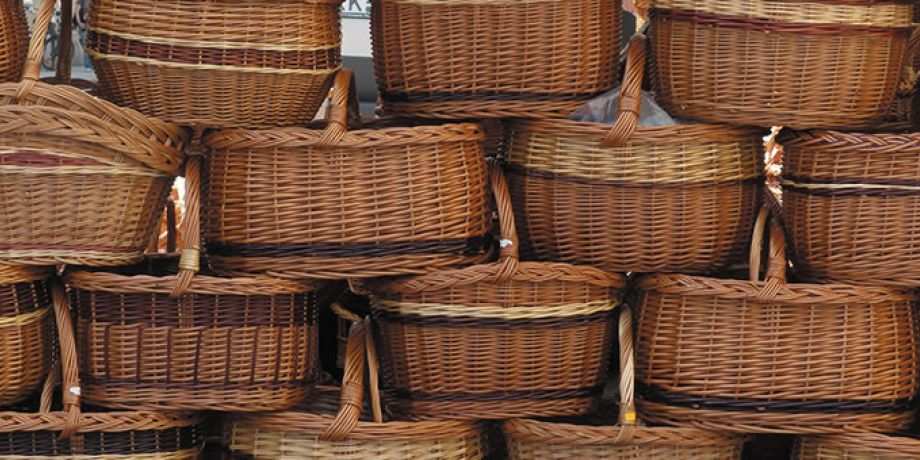
Radical Inclusion
In the Gospels, there are several accounts of feeding a large crowd from scant supplies. These accounts may be versions of one memorable event for which several accounts have survived. In reading these accounts we may presume that people who came a considerable distance brought no food with them. Such interpretations miss the whole point of the story.
Jesus’s audience would have been almost exclusively Jews. In the Jewish world in which Jesus lived racial purity was of the highest value. The lowest ranking people were the impure, and this category included almost everybody else. We know from the Gospel stories that the poor, considered impure, would have been in the crowd. Most religious-minded Jews of the time would have brought enough bread or dried fish to insure that they would not be forced to eat food if its ritual purity was in doubt. So they took the precaution and brought their own food.

Because Jesus had a reputation of attracting and tolerating the socially marginal that would have added to the anxiety of observant Jews. Besides, since they did not know the moral or religious status of their neighbors, sitting beside them would have made them reluctant to bring out whatever provisions they had with them.
Since they were in a deserted place and it was late evening the disciples came to Jesus with the suggestion that the crowd could go to the neighboring villages to buy food. But Jesus reminded them of their commitment: “You give them something to eat.” (Mk 6:37) The mission of the disciples is to feed, to commit themselves to a caring and nurturing ministry. They are called to support and encourage life, to become nourishment for one another in the community.
Sharing a meal together was Jesus’s idea. He invited His audience to sit down and share a meal together. The point of the feeding wasn’t food; it was breaking down of cultural, religious and social barriers. It was hands-on learning. It was kingdom living. “Table fellowship,” or sharing a meal with someone, had a special significance in Jesus’s social world that is difficult for us to imagine. It was not a snack or a casual act, as it sometimes is for us.
Rules governing meals prescribed not only what might be eaten and how it should be prepared, but also with whom one might eat. Sharing a meal represented mutual acceptance. The Pharisees, as we have said would not eat with somebody who was considered impure, and no decent person would share a meal with an outcast. The meal was a microcosm of the social system; table fellowship was an embodiment of their social vision. Jesus shared meals with all classes of people including outcasts, women, untouchables, the poor, and the marginalized. It is difficult for us to appreciate the radical character of Jesus’ inclusiveness.
Most religious-minded Jews of the time would have brought enough bread or dried fish to insure that they would not be forced to eat food if its ritual purity was in doubt. The open fellowship of Jesus was perceived as a challenge to the purity system. The meals of Jesus embodied His alternative vision of an inclusive community. No one is excluded because of their sinfulness or impurity. He offers the Father’s compassion, “the works that the Father has given me to complete, the very works that I am doing,” (Jn 5:36), and He justifies His meals by citing Hosea and saying to His opponents: “Go and learn what it means, ‘I desire mercy, not sacrifice.’” (Hos: 6:6) Matthew, like Luke has heard the criticism about Jesus: “Look, a glutton and a drunkard, a friend of tax collectors and sinners!” (Mt: 11:19) But Jesus’ own criticism of the religious leaders was that they had “neglected the weightier matters of the law: justice and mercy and faith.” (Mt 23:23)
At the feeding miracle in the desert, Jesus gave thanks to God, blessed and broke the bread, and the people listened to the sacred words. He opened their hearts, and they in turn opened their bags and brought out their food. After the sharing when all ate and were filled, there were twelve baskets of leftovers, but the greatest miracle of all had occurred: the breaking down of cultural and religious prejudice. The miracle was a new model of community, one generated by communion and inclusion.
We may wish to ask who is excluded from our table fellowship? Cultural and religious traditions often weigh us down too. With the growing multiculturalism of our cities, where the faceless poor are often pushed to the margins, migrants are a threat, and refuges are an embarrassment, we must go on widening the space at the table, making room for all so that no one is denied access to our table.
Columban Sr. Kathleen Coyle lives and works in Ireland.